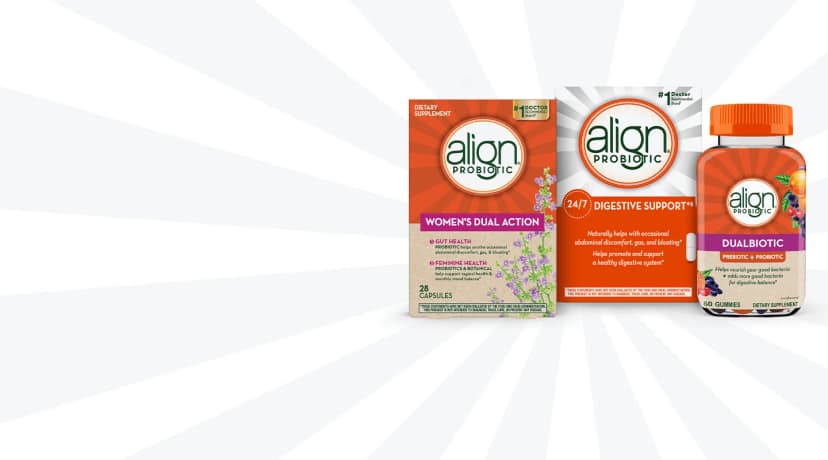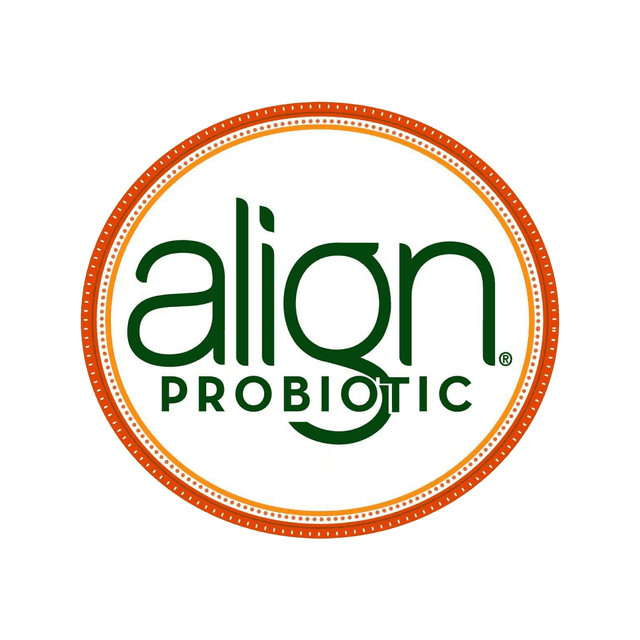Maintaining a healthy gut is essential for overall well-being. Your gut is home to trillions of bacteria that play a crucial role in digestion, immune function, and even mental health. One of the easiest ways to support your gut health is by incorporating specific foods into your diet. This article explores the top foods that can naturally improve your gut health.
Key Takeaways
- Yogurt is rich in probiotics, which are beneficial bacteria that help maintain a healthy gut.
- Kefir is a fermented drink that contains a diverse range of probiotics, making it a powerful gut health booster.
- Sauerkraut, made from fermented cabbage, is packed with probiotics and fiber, aiding in digestion.
- Kimchi, a spicy Korean dish, is another fermented food that promotes gut health through its probiotic content.
- Miso, a staple in Japanese cuisine, is made from fermented soybeans and provides beneficial bacteria for the gut.
Yogurt
Yogurt is one of the most well-known probiotic foods, and for good reason. It's made by adding beneficial bacteria to milk, which then ferment the lactose to produce lactic acid and other helpful microbes. Look for yogurt with the "Live & Active Cultures" seal, which ensures it contains at least 100 million probiotic cultures per gram at the time of manufacture.
Benefits of Yogurt
- Probiotics: Yogurt is rich in probiotics, which are good bacteria that help maintain a healthy gut flora.
- Digestive Aid: The probiotics in yogurt can help digest lactose, making it easier for those who are lactose intolerant to enjoy dairy.
- Nutrient-Rich: Yogurt is also a good source of protein, calcium, and vitamins.
Choosing the Right Yogurt
- Check Labels: Always check the ingredient list to ensure it contains live bacteria cultures.
- Avoid Added Sugars: Opt for plain yogurt and add your own fruit to keep sugar levels in check.
- Dairy-Free Options: There are many dairy-free and vegan yogurts available that also contain probiotics.
Yogurt is a versatile and delicious way to boost your gut health. Whether you enjoy it on its own, in a smoothie, or as part of a meal, it's a simple addition to your diet that can have significant benefits.
Kefir
Kefir is a fermented milk drink that is similar to yogurt but has a thinner consistency, making it drinkable. It is made by adding kefir grains, which are colonies of yeast and lactic acid bacteria, to milk. These grains ferment the sugars in the milk, resulting in a slightly tart and tangy flavor.
Kefir is rich in probiotics, which are beneficial bacteria that support gut health. These probiotics can help balance the gut microbiome, improve digestion, and boost the immune system. To ensure you get the most probiotics, choose plain kefir without added sugars or make your own at home.
Here are some ways to enjoy kefir:
- Add it to your breakfast smoothie instead of milk for a probiotic boost.
- Use it as a base for salad dressings by mixing it with lemon juice and seasoning.
- Substitute it for milk in overnight oats recipes for a healthy combination of probiotics and fiber.
Kefir is a versatile and nutritious addition to your diet that can help improve your gut health naturally.
Sauerkraut
Sauerkraut is finely chopped cabbage that has been fermented. This traditional German dish is not only delicious but also a great source of probiotics. The fermentation process creates beneficial bacteria that help improve digestion and add good bacteria to your gut.
Health Benefits
- Probiotics: Sauerkraut is rich in probiotics, which are beneficial bacteria that support gut health.
- Fiber: One cup of sauerkraut contains about 4 grams of fiber, which helps fuel the probiotics in your gut.
- Vitamins: It is also a good source of vitamins C and K.
How to Enjoy Sauerkraut
- Add it to a grilled chicken dish for extra flavor and health benefits.
- Substitute it for pickles on a sandwich or burger.
- Mix it into potato salad for a tangy twist.
- Serve it on a cheese plate as a gut-friendly option.
For the best probiotic benefits, choose sauerkraut that has not been pasteurized. Pasteurization kills both harmful and beneficial bacteria. Look for sauerkraut in the refrigerated section and check the label for live cultures.
Kimchi
Kimchi is a traditional Korean dish made from fermented vegetables, primarily cabbage and radishes. It's packed with probiotics, which are beneficial bacteria that support gut health. The fermentation process not only enhances its flavor but also produces live and active cultures that promote a healthy digestive system.
Benefits of Kimchi
- Rich in Probiotics: Kimchi contains Lactobacillus bacteria, which help balance the gut microbiome.
- High in Fiber: The vegetables used in kimchi provide a good amount of dietary fiber, aiding digestion.
- Antioxidant Properties: Kimchi is loaded with antioxidants that help detoxify the body.
How to Enjoy Kimchi
- Add it to a fried rice bowl with veggies and an egg for a delicious meal.
- Use it as a lively side dish with meat, salad, or eggs.
- Incorporate it into soups or stews for an extra flavor boost.
Kimchi is not just a tasty addition to your meals; it's a powerhouse of nutrients that can significantly improve your gut health. Try making your own at home to maximize its probiotic content.
Miso
Miso is a fermented paste made from soybeans, barley, or rice. During the fermentation process, beneficial bacteria are produced, which can help improve gut health. Miso is also a good source of protein, especially when made from soybeans. However, it is high in sodium, so a little goes a long way.
Miso is versatile and can be added to various dishes, such as:
- Soups
- Salad dressings
- Marinades for meats and vegetables
- Dipping sauces
- Stir-fries
Miso is a staple in traditional Japanese cooking but has gained popularity worldwide for its health benefits and unique flavor.
Tempeh
Tempeh is a traditional Indonesian food made by fermenting soybeans and pressing them into a cake-like form. Unlike tofu, tempeh is a fermented food, which means it contains probiotics. These probiotics are beneficial bacteria that help improve gut health.
Tempeh is not only a probiotic but also a prebiotic. The soybeans in tempeh provide fiber that feeds the good bacteria in your gut, helping them thrive. This dual benefit makes tempeh a powerful food for gut health.
Tempeh is also rich in nutrients like:
- Protein
- B vitamins
- Calcium
- Manganese
- Zinc
- Copper
You can prepare tempeh in various ways. Try marinating and grilling it, then adding it to a salad. You can also sauté or bake it for a delicious and nutritious meal.
Tempeh is a versatile and nutrient-dense food that supports both gut health and overall well-being.
Kombucha
Kombucha is a tangy, fizzy tea created by fermenting green or black tea with a SCOBY (symbiotic colony of bacteria and yeast) and sugar. This process usually takes about a week or more. During fermentation, natural carbonation occurs, giving kombucha its signature fizz. The alcohol content in kombucha is generally less than 0.5% alcohol by volume (ABV), which is the legal limit for non-alcoholic beverages in the U.S.
Benefits of Kombucha
- Probiotics: Kombucha contains lactic acid bacteria, which act as probiotics and support gut health.
- Antioxidants: When made with green tea, kombucha also provides antioxidants that help protect your cells.
- Low in Alcohol: Most commercially prepared kombucha has very low alcohol content, making it safe for most people to drink.
Tips for Choosing Kombucha
- Check the Label: Look for kombucha that is low in added sugars and free from artificial sweeteners, as these can negatively impact gut health.
- Refrigerate: Always keep kombucha cold to maintain its probiotic benefits and prevent over-fermentation.
- Homemade Kombucha: If you make your own, keep an eye on the fermentation time to control the alcohol content.
Kombucha is not just a trendy drink; it's a delicious way to support your gut health naturally. Whether you buy it or make it at home, this fizzy tea can be a refreshing addition to your diet.
Pickles
Pickles are more than just a crunchy snack; they are a great source of probiotics, which are beneficial bacteria that help keep your gut healthy. Eating pickles can add good bacteria to your digestive system, aiding in digestion and overall gut health.
Benefits of Pickles
- Probiotics: Pickles are fermented, which means they contain live bacteria that are good for your gut.
- Low in Calories: They are a low-calorie snack, making them a healthy addition to your diet.
- Rich in Antioxidants: Pickles contain antioxidants that help fight off harmful free radicals in your body.
How to Include Pickles in Your Diet
- As a Snack: Enjoy pickles straight from the jar for a quick and easy snack.
- In Sandwiches: Add pickles to your sandwiches for an extra crunch and flavor boost.
- In Salads: Chop pickles and add them to your salads for a tangy twist.
- With Burgers: Pickles are a classic topping for burgers, adding both flavor and texture.
Pickles are not just tasty; they are also a simple way to improve your gut health. Including them in your diet can help you maintain a healthy balance of good bacteria in your digestive system.
Natto
Natto is a traditional Japanese dish made from fermented soybeans. It's known for its strong flavor and sticky texture, which might be an acquired taste for some. Despite its unique characteristics, natto is packed with nutrients and offers several health benefits.
Rich in Probiotics
Natto contains a specific type of bacteria called Bacillus subtilis, which is beneficial for gut health. These probiotics help improve digestion and boost the immune system.
High in Protein
This fermented food is also a great source of plant-based protein, making it an excellent option for vegetarians and vegans. One serving of natto can provide a significant portion of your daily protein needs.
Contains Vitamin K2
Natto is one of the few plant-based sources of Vitamin K2, which is essential for bone health and helps prevent osteoporosis. It also plays a role in heart health by preventing the calcification of arteries.
How to Eat Natto
- With Rice: The most common way to enjoy natto is by mixing it with rice. You can add soy sauce, mustard, or green onions for extra flavor.
- In Sushi: Natto can be used as a filling in sushi rolls for a unique twist.
- In Salads: Add natto to your salads for a protein boost and a probiotic punch.
Natto may not be everyone's favorite at first bite, but its health benefits make it worth trying. Give it a chance, and you might find a new favorite way to support your gut health naturally.
Sourdough Bread
Sourdough bread is a type of fermented bread that uses a natural starter of yeast and bacteria. This fermentation process gives it a unique, tangy flavor and makes it easier to digest compared to regular bread. Even though the baking process kills most of the live bacteria, the beneficial compounds they produce remain. These compounds can help improve gut health.
Benefits of Sourdough Bread
- Easier Digestion: The fermentation process breaks down gluten, making it easier for some people to digest.
- Nutrient Absorption: The acids produced during fermentation help your body absorb more nutrients from the bread.
- Lower Glycemic Index: Sourdough bread has a lower glycemic index compared to other types of bread, which means it has a smaller impact on blood sugar levels.
How to Include Sourdough Bread in Your Diet
- Toast: Sourdough makes excellent toast. Top it with avocado, eggs, or your favorite spread.
- Sandwiches: Use it as a base for sandwiches to add a tangy flavor.
- Croutons: Cut it into cubes, season, and bake for delicious homemade croutons.
Sourdough bread is not just a trendy food; it's a nutritious option that can benefit your gut health. Its unique fermentation process makes it a standout choice for those looking to improve their digestive health naturally.
Conclusion
In conclusion, improving your gut health naturally is both achievable and beneficial for your overall well-being. By incorporating a variety of fiber-rich foods like beans, oats, and fruits, as well as fermented foods such as yogurt and sauerkraut, you can support the good bacteria in your gut. Remember, a balanced diet filled with colorful fruits and vegetables, whole grains, and lean proteins can make a significant difference. Additionally, managing stress and staying active are crucial components of maintaining a healthy gut. Start small, make gradual changes, and listen to your body to find what works best for you. By making these simple adjustments, you can pave the way for a healthier gut and a healthier you.
Frequently Asked Questions
What are probiotics?
Probiotics are live bacteria found in certain foods that are good for your gut. They help keep your digestive system healthy by fighting off bad bacteria and supporting your immune system.
What foods are rich in probiotics?
Foods rich in probiotics include yogurt, kefir, sauerkraut, kimchi, miso, tempeh, kombucha, pickles, natto, and sourdough bread.
How do prebiotics help gut health?
Prebiotics are types of fiber that feed the good bacteria in your gut. They help these bacteria grow and thrive, which supports overall gut health.
Can I improve my gut health just by eating certain foods?
Yes, eating a variety of probiotic and prebiotic foods can naturally improve your gut health. However, it's also important to maintain a balanced diet and manage stress for the best results.
Are fermented foods good for your gut?
Yes, fermented foods are excellent for your gut because they contain probiotics, which are beneficial bacteria that help maintain a healthy digestive system.
How can I start incorporating gut-healthy foods into my diet?
Start by adding small amounts of probiotic and prebiotic foods to your meals. You can gradually increase the amount as your body gets used to them. For example, try adding yogurt to your breakfast or having a side of sauerkraut with dinner.
























